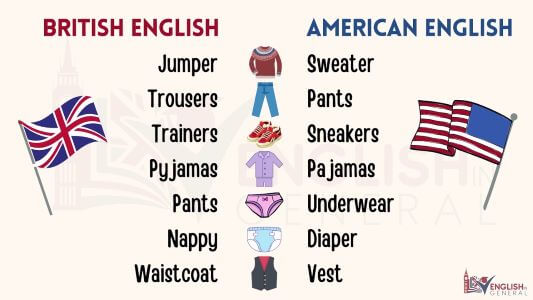Charles Wiegand

US English, Why do Brits Hate it So?
April 28, 2021
This is the transcript of a short video I found on the BBC website recently and found interesting, and I think many reading my blog will also find it of interest. (Keep in mind this is from England and comes from a British point of view.)
"Can I get a cappucino?" Three of these words regularly top the list of British bugbears when it comes to language. "Can I get" is seen as a borrowing from American English that we can all do without - in fact, many go further and denounce the language of our American cousins as the "wrong kind of English", an impure, degenerate kind that should be banished from the dictionary's pages forever. And yet so many of the British assumptions about US English are completely wrong.
Many Brits, for example, will point to "honor", "color", and "center" as proof that Americans simply don't know how to spell. And yet these spellings were all alive and well in British English long before the pilgrim fathers set sail in the early 17th century. The spelling "honour" with the "u" is found in around 400 times in the First Folio of Shakespear's plays. "Honor" on the other hand, occurs over 500 times. (Shakespear's compositors also used "realise" with a "z".) At this point, English spelling was still remarkably fluid. But political enmity with the US meant separate languages became symbols of independence. For the Americans, rejecting the King's English was tantamount to rejecting the King.
Within Shakespear's plays, we also find much of the phraseology that we associate today with American English: "gotten", for example, or "trash". During the Bard's lifetime "fall" was a standard term for "autumn" - a shortening of "fall of the leaf", just as "spring" was the "spring of the leaf". A few centuries later, "aluminum" was the British name for the chemical element, because it followed the model of "platinum"; we later decided to go with "aluminium" to follow magnesium instead.
"Verbing" is another apparently American habit the British loathe, and it's hard to argue with the ugliness of words like like "podiuming" or "securitizing". And yet many of our greatest writers loved to spin a verb or two. Keats wrote of turtles that cooingly "passion their voices", while Shakespear used "friend" as a verb long before Facebook came along.
As for vocabulary that is North American through and through (and mishaps with "pants" and "fannies" aside), there is the joyous verve and vitality of words like "blizzard", "skedaddle", "finagle", and "highfalutin'". Those settlers hoping for a new life in 1620 were word inventors and borrowers by necessity: filling linguistic gaps when they had to, bequething us with "foothill", "watershed", "mocassin", and "burying the hatchet" in the process.
Perhaps it's time the British let their stiff upper lip relax a little, and admit that English has always been a glorious and hotch-potch of influences from right across the globe. "Stiff upper lip" by the way - that quintessentially British phrase - actually originated in North America.
-- www.bbc.com - Susie Dent
My notes:
In the first paragraph the Brits would use the word "have" not "get" - "can I have" while in the US we say "Can I get" (typically).
In the second paragraph are the words "honor", "color", and "center" spelled in the US English form. In British English they are "honour", "colour", and "centre". And "realize" is spelled "realise" in British-English speaking countries.
In the third paragraph the word "gotten" is used as the past participle of "got" in US English, while "got" is the past participle of "got" in British English. Also, the word "trash" (and "garbage") is definately US English while "rubbish" is used by the Brits. "Fall" is more commonly used in the US and "autumn" is more common across the pond. "Aluminum" is preferred by far in the US compared to "aluminium" in British English. And interesting side note: "aluminium" or "aluminio" are also Spanish for "aluminum".
And finally we come to "pants" which in British English is "trousers". As for "fanny" I had to do a little searching on the web to find out the differences between US and British uses. In the US "fanny" refers to a women's (typically) butt. In British English it takes on a much more vulgar use, including sexual intercourse, or women being viewed as sexual objects, it can even be used to refer to the female genitalia. In the US we use it with "pack" to refer to a small zippered bag attached to a belt that can be worn around one's waist, and we call that a "fanny pack".
